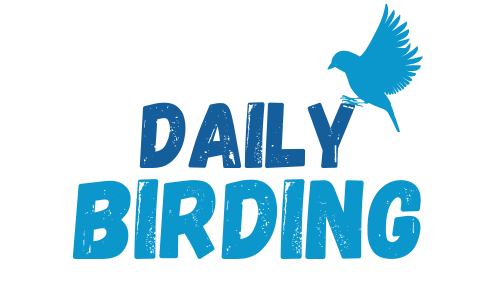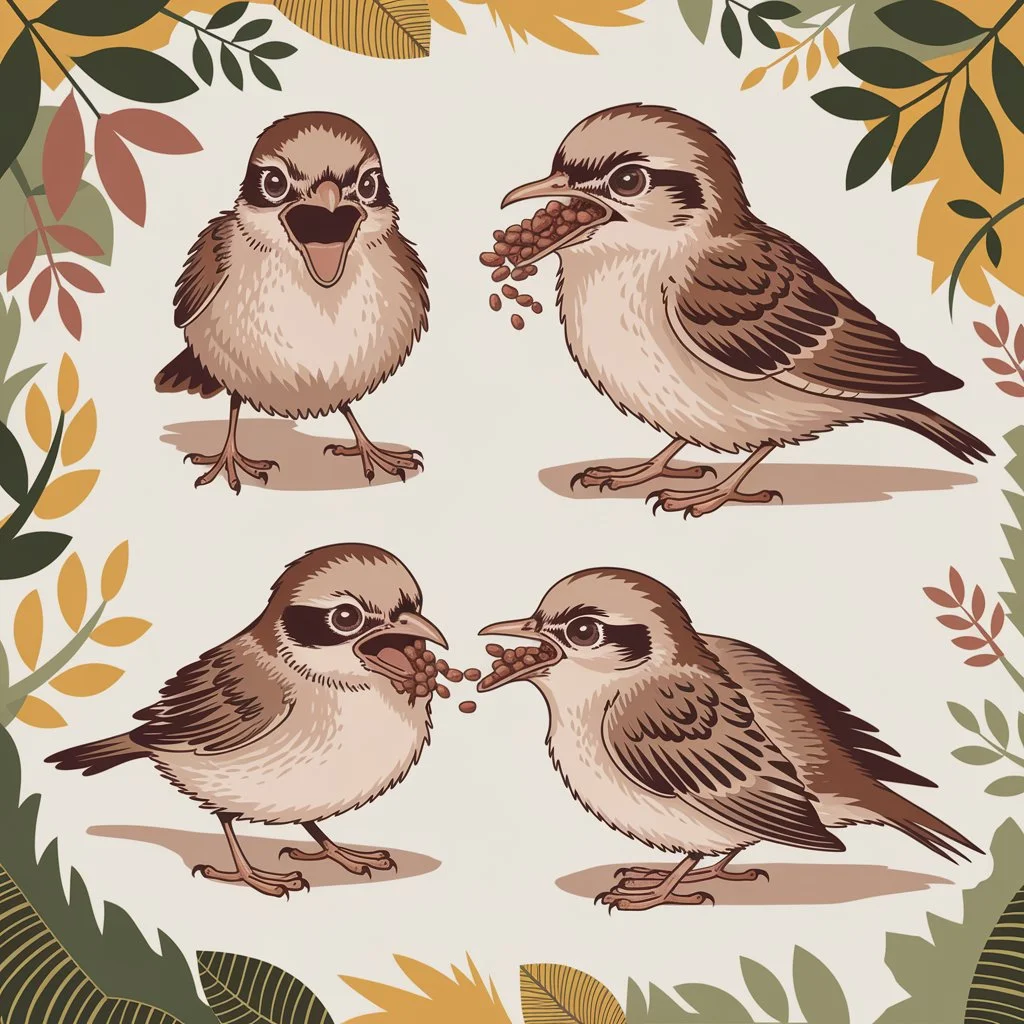When you encounter a young bird that seems to need help, your first concern may be what to feed a baby bird. Providing the proper nutrition is crucial for the bird’s development and survival. Knowing the appropriate food and feeding techniques can make all the difference, whether it’s hatchling, nestling, or fledgling.
Understanding What to Feed a Baby Bird Based on Its Development Stage
Identifying the bird’s development stage is the first step. Each stage—hatchling, nestling, or fledgling—has unique nutritional needs.
- Hatchlings: These are newly born birds without feathers. They rely entirely on their parents (or you, if the parents aren’t around) for warmth and food.
- Nestlings: Slightly older, these birds have some feathers and require frequent feeding to support rapid growth.
- Fledglings: Almost ready to fly; fledglings still need occasional feeding but are starting to explore independently.
By recognizing the bird’s stage, you can better determine what to feed a baby bird and how often it needs nourishment.
Safe and Nutritious Foods for Baby Birds
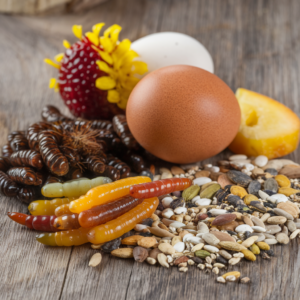
Feeding a baby bird the right food is essential for its growth. Here are some safe foods for baby birds:
- Moist Dog or Cat Food: High-protein dog or cat food soaked in water until soft is an excellent temporary food option. It provides the necessary nutrients for growth.
- Hard-Boiled Eggs: Finely chopped, hard-boiled eggs are rich in protein and easy to digest.
- Mealworms: These are a great source of protein, but they should be chopped into small pieces to ensure they are safe for the bird to eat.
For more information on feeding techniques, refer to this feeding guide for baby birds. These foods can help ensure the baby bird receives the nutrition it needs to thrive.
Foods to Avoid When Feeding a Baby Bird
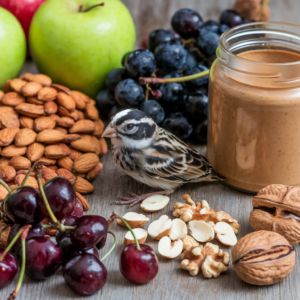
Just as important as knowing what to feed a baby bird is understanding what not to feed them. Certain foods can be harmful or even fatal:
- Bread: Bread offers little nutritional value and can cause blockages in the bird’s digestive system.
- Milk: Birds cannot digest milk, leading to severe digestive issues.
- Water: Directly giving water can be dangerous, as baby birds can easily aspirate it into their lungs.
Avoiding these foods helps keep the bird healthy and reduces the risk of harm.
How Often Should You Feed a Baby Bird?
The frequency of feeding depends on the bird’s age and species. Hatchlings and nestlings must be fed every 15-20 minutes during daylight hours. Fledglings require less frequent feeding, about every 30-45 minutes.
Sticking to a regular feeding schedule is crucial for the bird’s health. Overfeeding can be as harmful as underfeeding, so it’s essential to balance the amount and frequency of feedings.
Techniques for Feeding a Baby Bird Safely
Feeding a baby bird involves more than just choosing the right food. Proper feeding techniques are critical to prevent choking or other injuries. Here’s how you can safely feed a baby bird:
- Use a Syringe or Dropper: This allows for controlled feeding, ensuring the bird doesn’t choke.
- Feed Small Amounts: Offer small, manageable portions to avoid overfeeding.
- Keep the Bird Upright: Always keep the bird upright while feeding to prevent food from entering the lungs.
These techniques help ensure the baby bird receives its food safely and effectively.
Signs of Malnutrition in Baby Birds
Monitoring the bird for signs of malnutrition is crucial. Look out for the following indicators:
- Weakness: Lethargy or lack of energy may indicate the bird isn’t getting enough nutrients.
- Weight Loss: Rapid weight loss is a warning sign that the bird isn’t being properly nourished.
- Poor Feather Development: Patchy or incomplete feather growth can signal a lack of essential nutrients.
If you notice these signs, adjusting the bird’s diet immediately is essential to ensure its health.
What to Do If You’re Unsure About What to Feed a Baby Bird
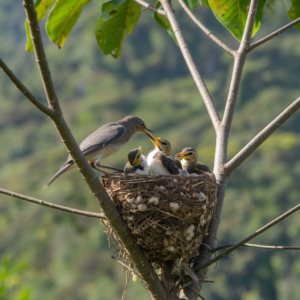
If you’re ever unsure about what to feed a baby bird, it’s best to consult with a wildlife rehabilitator or veterinarian. These professionals can provide specific advice tailored to the bird’s species and age.
Hand-rearing a baby bird is a significant responsibility and is sometimes better left to experts. When in doubt, seeking professional advice is the safest option to ensure the bird’s well-being.
Preparing a Baby Bird for Release
As the bird grows more robust, it’s time to prepare it for release back into the wild. Gradually introduce natural foods like seeds, insects, and fruits. This transition helps the bird learn how to forage for food independently and ensures it’s ready to survive independently.
Conclusion
Feeding a baby bird requires knowledge, patience, and care. Understanding what to feed a baby bird and following safe feeding practices can help ensure its survival and healthy development. Always seek expert advice when necessary, and focus on providing a balanced diet to support the bird’s growth.
With the right information and approach, you can significantly improve the life of a baby bird, helping it thrive and eventually return to the wild.
